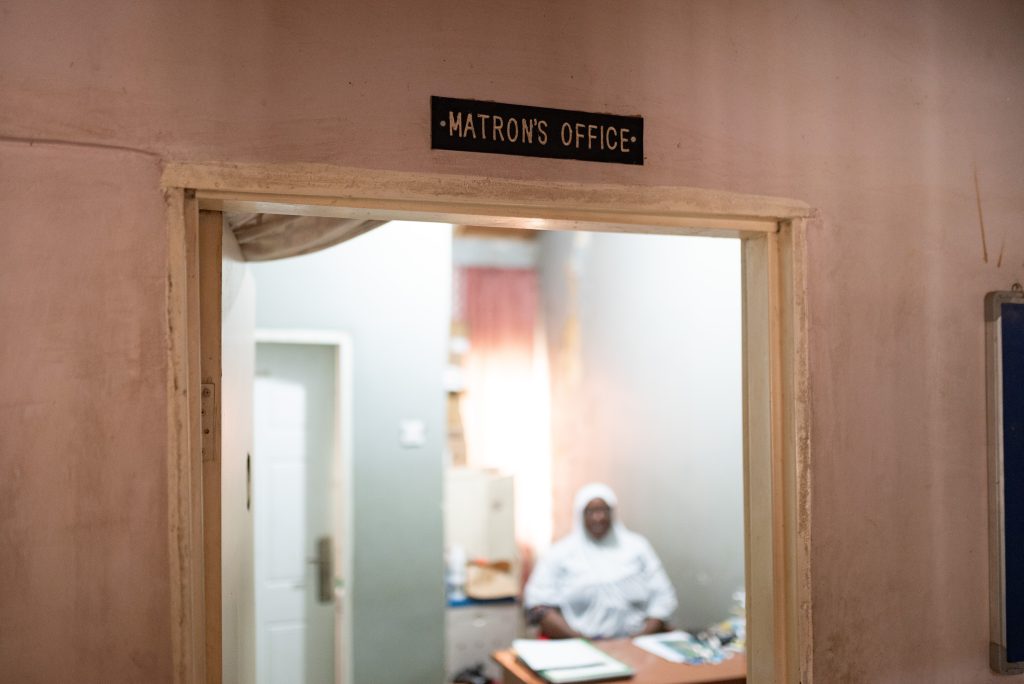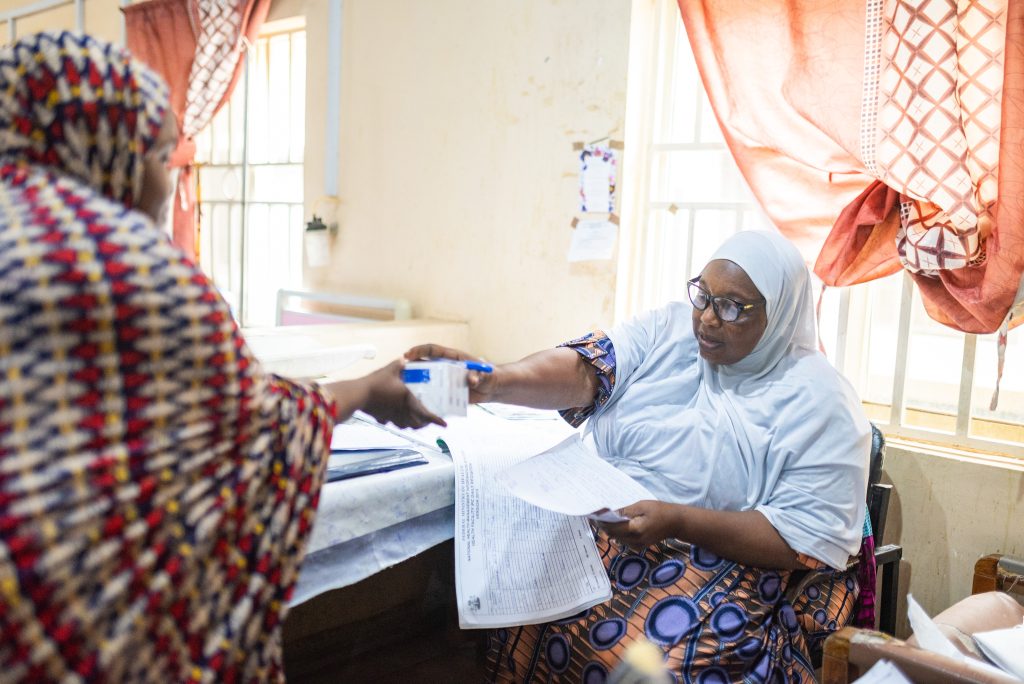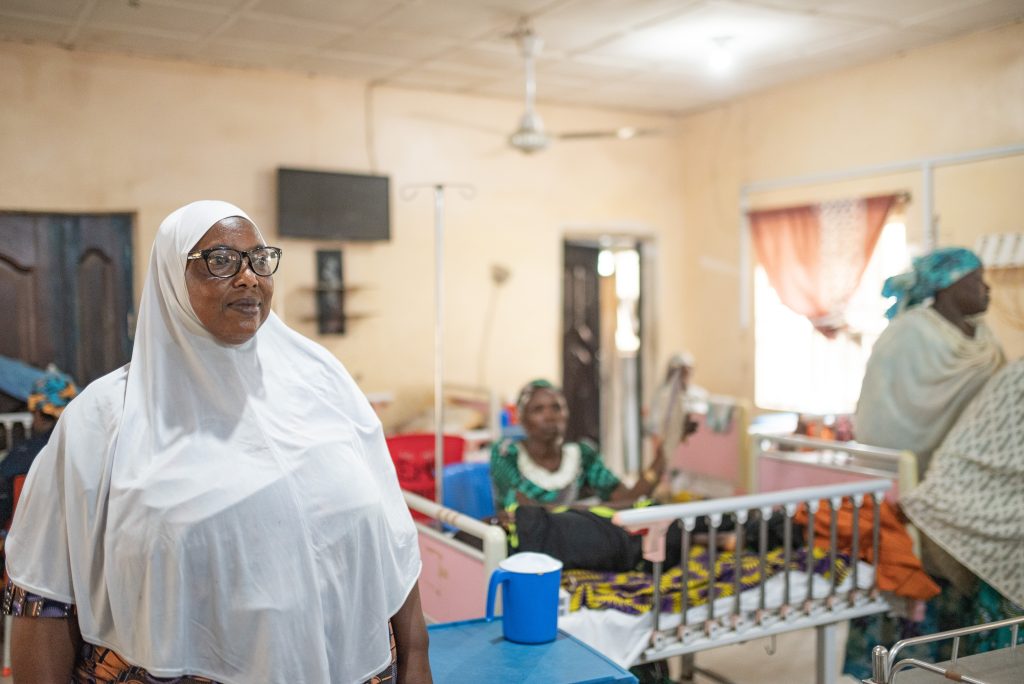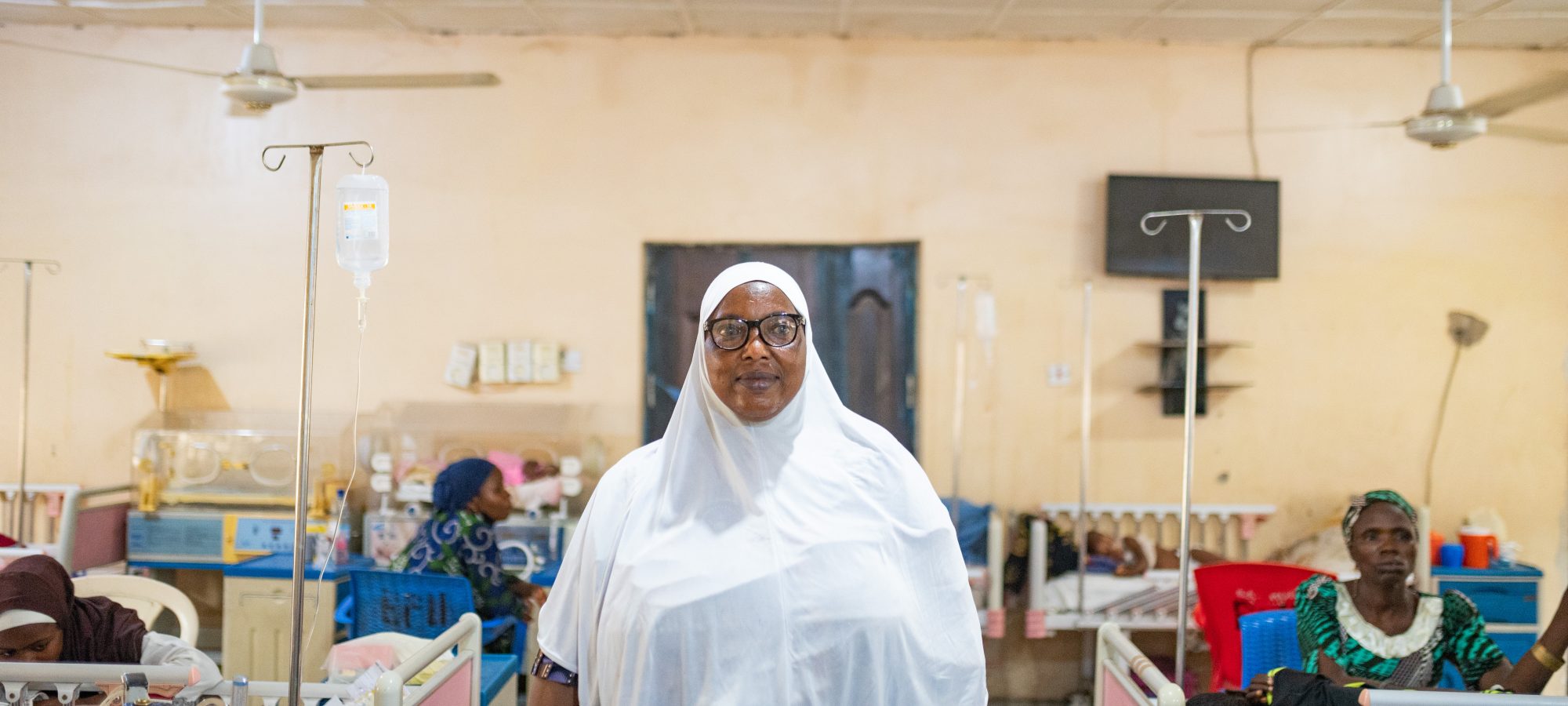Photos by David Dawali Exodus
This is Mairo, a matron at a hospital in Kano state, in northern Nigeria. She stands in the middle of the ward where is she is responsible, alongside a team of nurses, for the care of children who are experiencing ‘severe malaria’ – this is a medical emergency and occurs when treatment for what was previously highly treatable ‘uncomplicated malaria’ has been delayed and the disease reaches a stage in which an individual is at risk of serious illness, including organ failure and death.
The children in Mairo’s care are very unwell. Their caregivers sit by their children’s bedsides and wait, hoping that the medicines administered by Mairo and her team are effective and that their symptoms begin to improve.

During one afternoon on the ward, Mairo juggles various tasks, each with the ultimate goal of preventing the deaths of the children on beds a few feet from her desk. As matron, Mairo is a nurse, but she also acts as a leader to the junior nurses, a counsellor to worried caregivers, a stock keeper of vital malaria commodities and a friendly face to the children receiving treatment.
Children arrive at the hospital often having been referred by a community health worker, or ‘CHIPS’ agent who is trained as part of the Community Health Influencers, Promoters and Services programme to spot the signs of malaria. At the hospital, children are triaged to determine how sick they are and receive a ‘rapid diagnostic test’ to confirm if they test positive for malaria, for those with mild symptoms of malaria receive they can be discharged with medicines to treat what is likely to be an uncomplicated case of malaria. For some children, however, more urgent treatment is required. If they have symptoms including deep breathing, hypoglycaemia or convulsions, they may have severe malaria and require an enhanced level of medical inquiry, treatment and care.
Mairo’s ward is equipped with artesunate, an injectable commodity recommended by the World Health Organization as the first-line treatment for cases of severe malaria. Once into the blood stream, artesunate gets to work immediately, generating molecules that inhibit the function of the malaria parasite and clear it from the blood within 48 to 72 hours. Rapid diagnosis and treatment is key and this is the work that Mairo does, day after day.

Across Nigeria, malaria remains a significant health problem for many people. In 2022, the country accounted for over a quarter of malaria cases worldwide and almost a third of all deaths from the disease. In Kano state and on hospital wards like Mairo’s, the statistics are played out in real life, but they also serve as an example of what can be achieved with sustained action and investment to target malaria and bring down cases.
Malaria Consortium is working with Nigeria’s Ministry of Health, the National Malaria Elimination Programme and Kano State Elimination Programme to strengthen the diagnosis and case management of severe malaria. Focusing efforts to increase the number of trained health workers able to specifically manage cases of severe malaria, ensuring there are more laboratory supervisors and technicians accredited to undertake microscopy to detect malaria and that the systems that govern this are strengthened.
Thanks to this work and the dedication and resilience of health workers like Mairo, malaria prevalence in Kano state has fallen from 32 percent in 2018 to 26 percent in 2021 and children with severe malaria are more likely to receive the treatment they need to save their life.
With your support, we can reach more children with the health services they need to survive and thrive. Support Mairo and health workers like her and help save a life.
Find out more about Giving Tuesday

